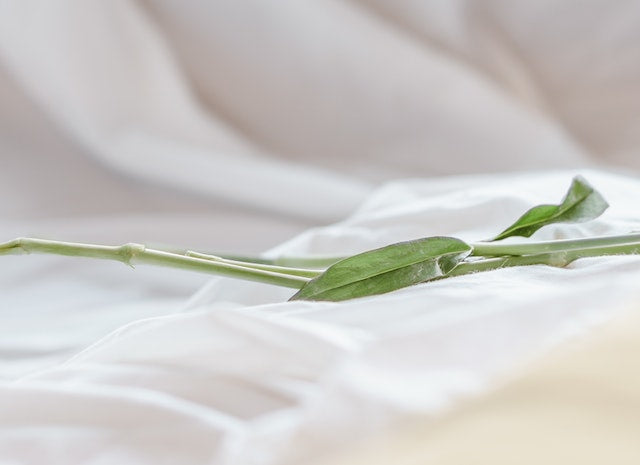
Introduction
We never talk about duvet covers enough! They are essential to add a final touch to the decor of our bedroom. In addition to being an element of comfort, they reflect our personality and our style. So, what are the current trends in sustainable design and materials for duvet covers? This is what we will discover together in this article!
I. Design trends
Fashionable, trendy patterns and colors
-
Geometric and abstract patterns : They are everywhere and add pep to our bed. Triangles, diamonds or abstract shapes, that's for sure, you won't get bored with these designs!
-
Floral and botanical inspirations : They bring a touch of freshness and nature to our bedroom. We love the foliage and flowers, which make us want to escape.
-
Neutral colors and pastel shades : They are ideal for creating a soft and soothing atmosphere. Greys, beiges and pastels are our allies for a harmonious cocoon.
Focus on popular styles
-
Minimalist and refined style : We say “yes” to simplicity with plain duvet covers or with discreet patterns. The key word here is sobriety.
-
Bohemian and ethnic style : We travel with exotic patterns, fringes and pompoms. Boho style duvet covers transport us into a warm and colorful world.
-
Vintage and retro style : We take a leap into the past with duvet covers with patterns from yesteryear. Flowers, polka dots and stripes remind us of good times.
II. Sustainable and ecological materials
Organic cotton: an ethical choice
-
The advantages of organic cotton for the environment : It is grown without pesticides or chemical fertilizers, which preserves soil and water tables. In addition, its cultivation consumes less water than that of conventional cotton.
-
Certifications and quality labels : To be sure of buying an organic cotton duvet cover, we check that it has labels such as GOTS (Global Organic Textile Standard) or OEKO-TEX.
Linen and hemp: two sustainable allies
-
Ecological and thermoregulatory properties : These two materials are naturally biodegradable and have thermoregulatory properties. They keep us warm in winter and cool in summer!
-
The durability and resistance of these materials : Linen and hemp are very resistant
and soften over time. A linen or hemp duvet cover can last for years, and that's good for our wallet and for the planet!
Ethical and recycled alternatives
-
Bamboo and lyocell (Tencel) fibers : They are soft, hypoallergenic and environmentally friendly. Bamboo grows quickly and without pesticides, while lyocell is made from wood pulp in an eco-friendly way.
-
Duvet covers made from recycled materials : We think, for example, of duvet covers made from recycled polyester. They help reduce our ecological footprint by recovering waste.
III. How to incorporate these trends into your bedroom
A. Choose a duvet cover that matches your decorating style
Whether you're a fan of minimalist style or a fan of the bohemian look, there's bound to be a trendy duvet cover that suits your tastes. Don’t hesitate to play with patterns and colors to create a harmonious whole.
B. Mix and match patterns and colors
We dare to mix and match by combining geometric patterns with floral patterns, for example. And why not play with colors by adding a touch of pep with bright shades?
C. Opting for sustainable materials for an eco-responsible choice
By choosing a duvet cover made from organic cotton, linen, hemp or recycled fibers, we are doing something for our planet and for our health. So, we say “yes” to sustainable and ecological materials!
Conclusion
There you have it, we've taken a look at the trends in duvet covers, from design to sustainable materials. Now it's up to you to choose the duvet cover that suits you and that respects the environment. Good shopping !
The 5 most frequently asked questions
- What is the standard size of a duvet cover?
Standard size varies by country. In France, the most common size is 220x240 cm for a double bed, and 140x200 cm for a single bed.
- How do I wash my organic cotton or linen duvet cover?
Follow the label instructions and wash at low temperature (30°C) to preserve the fibers and the environment.
- Where to buy a duvet cover made from sustainable materials?
You can find eco-friendly duvet covers in stores specializing in household linen, as well as on online sales sites. Don't forget to check the quality labels!
- How much does a duvet cover made from sustainable materials cost?
Prices vary depending on materials and brands. Count between €40 and €150 for a good quality duvet cover in organic cotton, linen or hemp. Recycled or bamboo fiber and lyocell alternatives may be a little cheaper. Discover all our cotton duvet covers on our online store HERE and don't wait any longer to update your bedroom.
- How do I maintain my duvet cover made from durable materials to extend its lifespan?
Wash your duvet cover according to label instructions and avoid overloading it with detergent. Choose air drying rather than machine drying, and iron at low temperature if necessary.
-









